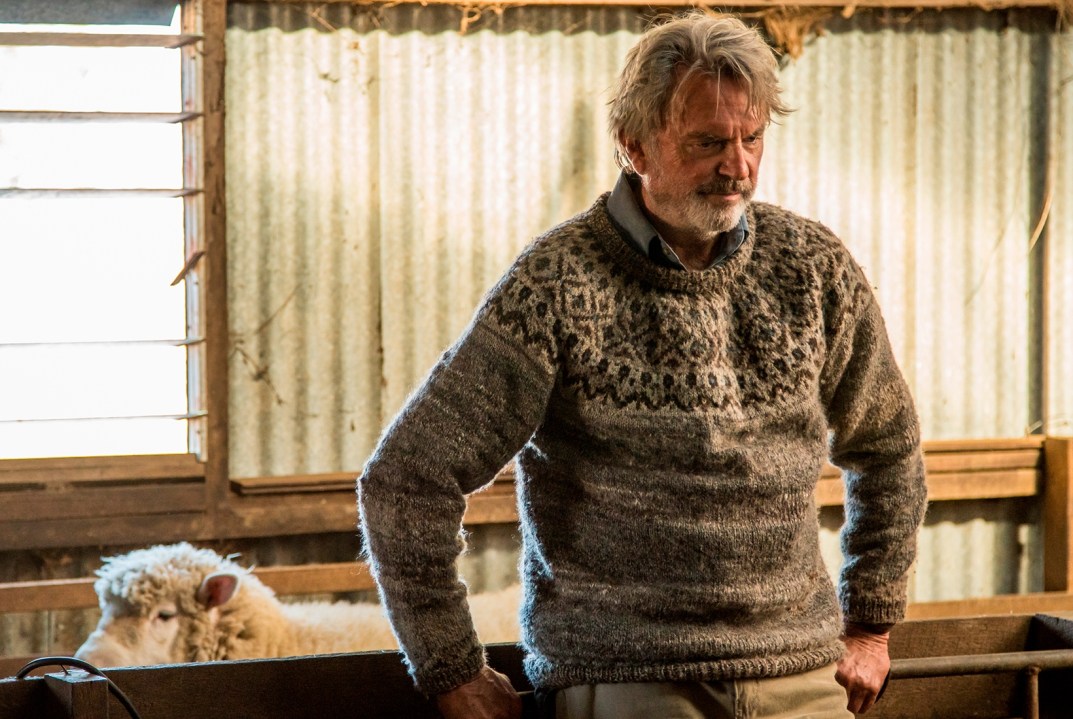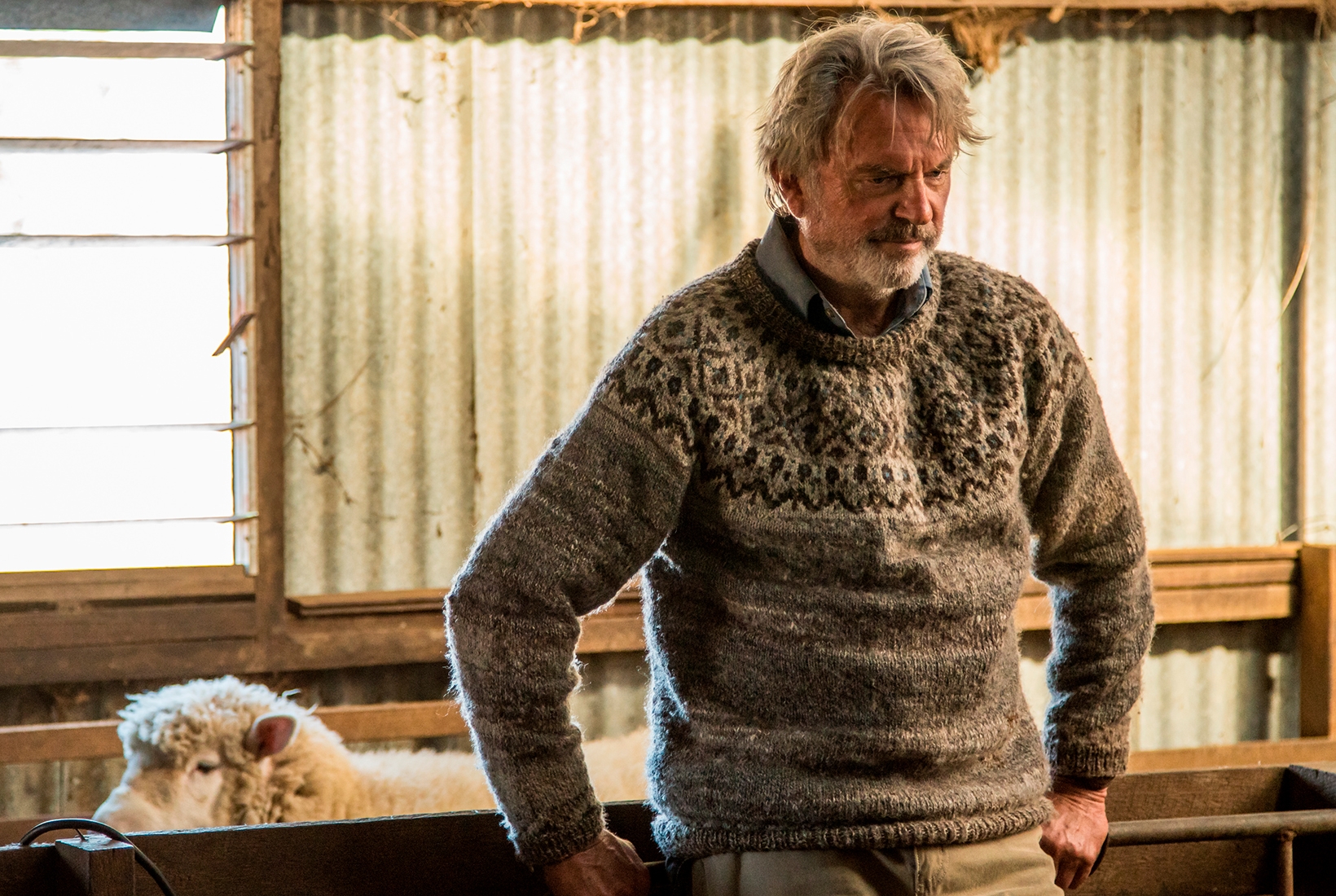Rams is an average film with a better film trying to get out, and you may already have seen that better film. It’s the Icelandic one, of the same name, released in 2015, on which this Australian version is based. That was played as a spare, stark, bitterly dark comedy set amid ice and blizzards and featuring men with unkempt beards, whereas this is sunnier and more kempt and therefore significantly blander. You may even, at various points, feel as though you’ve been trapped in an overlong episode of All Creatures Great and Small (nothing against All Creatures Great and Small, but two hours of it?).
The film stars the always kempt, perpetually handsome Sam Neill whose performance here involves considerable amounts of staring into the middle distance in that thoughtful, squinty-eyed way — Clint Eastwood-style. He is Colin and he has a brother, Les (Michael Caton). The action has been uprooted to remote Western Australia where the pair share the family land, live in houses less than 100 metres apart, and haven’t talked for 40 years. They love their clever collie, which passes notes between them when they have to communicate, and they love their sheep, but not each other. Actually, they really, really, really love their sheep. Colin is always talking to his ‘girls’. ‘You’re beautiful. And you’re beautiful. But you’re the best.’ This is all rather touching, particularly if you, too, find sheep endearing, and also quite remarkable (you know they have nearly 360º vision?).
The original Icelandic version is a better film and has better knits
But disaster strikes. Colin notices something about the ram that has just won best-in-show for Les (Colin came second, grrr). It’s the disease OJD and, being the responsible one, he contacts the local vet who contacts the ministry and now all their sheep will have to be destroyed. It’s a rare bloodline, first bred in 1924 by the brothers’ parents. They’re exactly suited to the microclimate and, chances are, their like will never be seen again. This turns Les, who is unhinged anyway, into a ball of alcoholic, embittered rage. But can the two work together to save their sheep somehow?
Directed by Jeremy Sims, what was once an intense, pared-back, gripping tale of fraternal friction now goes all round the houses. I suppose I should stop comparing this with the original, even if that is hard (how do you unsee a film you’ve seen?) and ask whether it succeeds on its own terms. In some ways it does. There’s a particularly affecting scene, for example, when Colin decides that no one else gets to slaughter his beloved ‘girls’. But it works because it’s close to the original, and there I go again — can’t be helped, it would appear.
Most disappointingly, the film doesn’t trust the audience to work anything out for themselves. When Colin has to make a repair, for instance, it seems we have to go with him to the store to buy materials, which isn’t actually necessary. So there’s dead time. The script, too, spells everything out, whereas a smart script always knows that what’s most important is what isn’t said (that’s what made The Dig so excellent). More worrying, subplots have been grafted on, including bush fires, a cartoonish ministry man and a (half-hearted) romance for Colin involving the local ‘Pommie’ vet, as played by Miranda Richardson, who mostly looks embarrassed in a kind of what-am-I-doing-here way? Don’t come to me for answers, love, as I genuinely cannot say. As for the comedy, it is not dark and sly and integral as it has a contrived feel and relies quite significantly on a can of air-freshener.
If you are coming to this for the first time, you may find it decent enough. You may even enjoy its undemanding nature and the sentimental ending. But mostly I would steer you towards the original, available for a few quid at the BFI site or on Amazon. Better film and also: better knits.







Comments